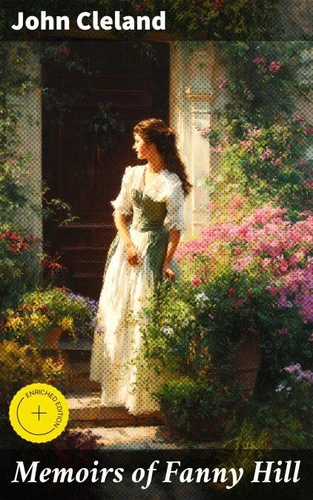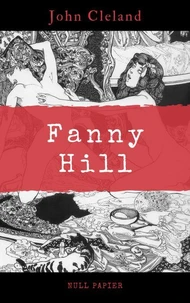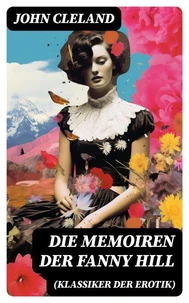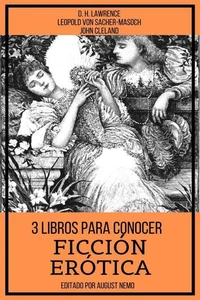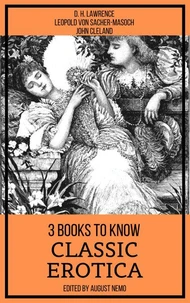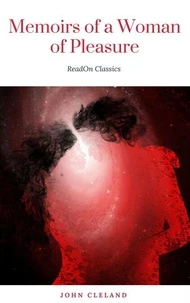Memoirs of Fanny Hill. Enriched edition. A Provocative Journey into 18th - Century London's Sexual Underground
Par : ,Formats :
Disponible dans votre compte client Decitre ou Furet du Nord dès validation de votre commande. Le format ePub est :
- Compatible avec une lecture sur My Vivlio (smartphone, tablette, ordinateur)
- Compatible avec une lecture sur liseuses Vivlio
- Pour les liseuses autres que Vivlio, vous devez utiliser le logiciel Adobe Digital Edition. Non compatible avec la lecture sur les liseuses Kindle, Remarkable et Sony
 , qui est-ce ?
, qui est-ce ?Notre partenaire de plateforme de lecture numérique où vous retrouverez l'ensemble de vos ebooks gratuitement
Pour en savoir plus sur nos ebooks, consultez notre aide en ligne ici
- Nombre de pages177
- FormatePub
- ISBN859-65--4777629-1
- EAN8596547776291
- Date de parution13/12/2023
- Protection num.Digital Watermarking
- Taille1 Mo
- Infos supplémentairesepub
- ÉditeurGOOD PRESS
Résumé
In "Memoirs of Fanny Hill, " John Cleland crafts an audacious narrative that explores the life and liberties of an orphaned young woman navigating the complexities of love, desire, and sexual awakening in 18th-century England. Written in a vibrant first-person perspective, the novel is both a social commentary and a celebration of sensuality, reflecting the shifting attitudes toward sexuality during the Enlightenment.
With its lush prose and candid depictions of eroticism, Cleland'Äôs work challenges the moral constraints of his time while entering the canon of early English erotic literature, marking a significant departure from the prevailing themes of the period. John Cleland, born in 1709, was influenced by his own tumultuous experiences, including financial struggles and imprisonment that inform the novel's existential explorations.
His background in literature and commerce, as well as his encounters with moralistic censorship, motivated him to create a work that not only entertains but also provokes thought about personal freedom and societal norms. His unique positioning at the intersection of vice and virtue evokes a narrative rich with pathos and humor. For readers drawn to provocative literature that questions social conventions, "Memoirs of Fanny Hill" stands as an essential text.
Cleland's masterful blend of wit and sensuality invites readers to reconsider the boundaries between moral propriety and personal autonomy, making this work a timeless exploration of human desire that remains relevant today.
With its lush prose and candid depictions of eroticism, Cleland'Äôs work challenges the moral constraints of his time while entering the canon of early English erotic literature, marking a significant departure from the prevailing themes of the period. John Cleland, born in 1709, was influenced by his own tumultuous experiences, including financial struggles and imprisonment that inform the novel's existential explorations.
His background in literature and commerce, as well as his encounters with moralistic censorship, motivated him to create a work that not only entertains but also provokes thought about personal freedom and societal norms. His unique positioning at the intersection of vice and virtue evokes a narrative rich with pathos and humor. For readers drawn to provocative literature that questions social conventions, "Memoirs of Fanny Hill" stands as an essential text.
Cleland's masterful blend of wit and sensuality invites readers to reconsider the boundaries between moral propriety and personal autonomy, making this work a timeless exploration of human desire that remains relevant today.
In "Memoirs of Fanny Hill, " John Cleland crafts an audacious narrative that explores the life and liberties of an orphaned young woman navigating the complexities of love, desire, and sexual awakening in 18th-century England. Written in a vibrant first-person perspective, the novel is both a social commentary and a celebration of sensuality, reflecting the shifting attitudes toward sexuality during the Enlightenment.
With its lush prose and candid depictions of eroticism, Cleland'Äôs work challenges the moral constraints of his time while entering the canon of early English erotic literature, marking a significant departure from the prevailing themes of the period. John Cleland, born in 1709, was influenced by his own tumultuous experiences, including financial struggles and imprisonment that inform the novel's existential explorations.
His background in literature and commerce, as well as his encounters with moralistic censorship, motivated him to create a work that not only entertains but also provokes thought about personal freedom and societal norms. His unique positioning at the intersection of vice and virtue evokes a narrative rich with pathos and humor. For readers drawn to provocative literature that questions social conventions, "Memoirs of Fanny Hill" stands as an essential text.
Cleland's masterful blend of wit and sensuality invites readers to reconsider the boundaries between moral propriety and personal autonomy, making this work a timeless exploration of human desire that remains relevant today.
With its lush prose and candid depictions of eroticism, Cleland'Äôs work challenges the moral constraints of his time while entering the canon of early English erotic literature, marking a significant departure from the prevailing themes of the period. John Cleland, born in 1709, was influenced by his own tumultuous experiences, including financial struggles and imprisonment that inform the novel's existential explorations.
His background in literature and commerce, as well as his encounters with moralistic censorship, motivated him to create a work that not only entertains but also provokes thought about personal freedom and societal norms. His unique positioning at the intersection of vice and virtue evokes a narrative rich with pathos and humor. For readers drawn to provocative literature that questions social conventions, "Memoirs of Fanny Hill" stands as an essential text.
Cleland's masterful blend of wit and sensuality invites readers to reconsider the boundaries between moral propriety and personal autonomy, making this work a timeless exploration of human desire that remains relevant today.

